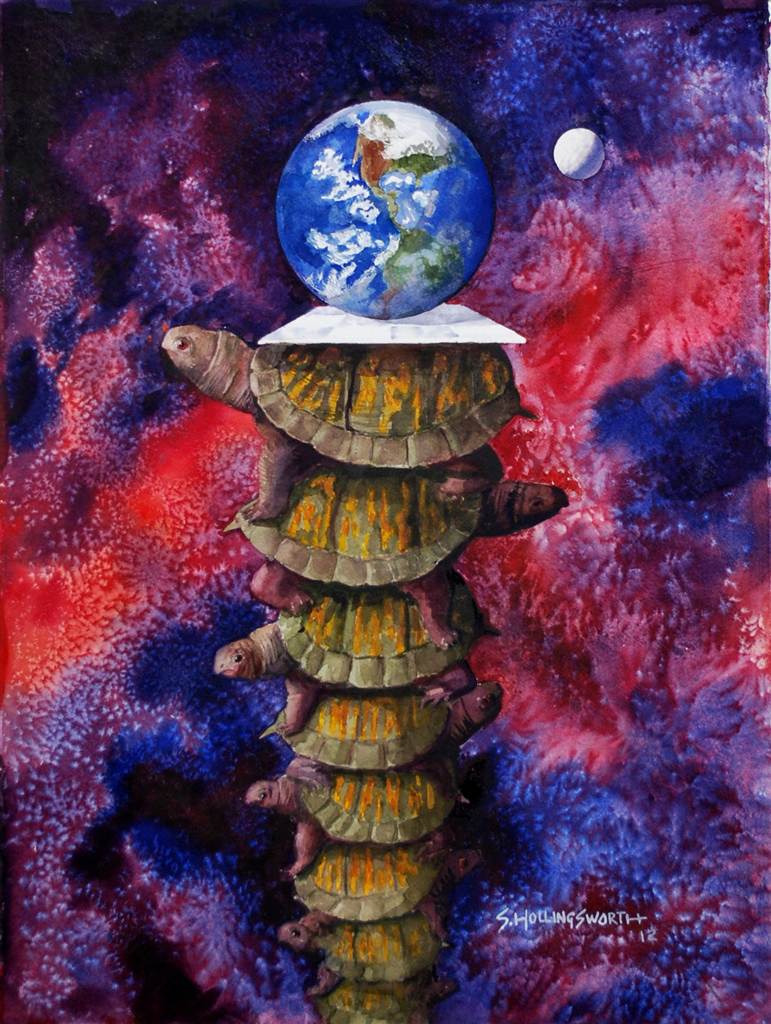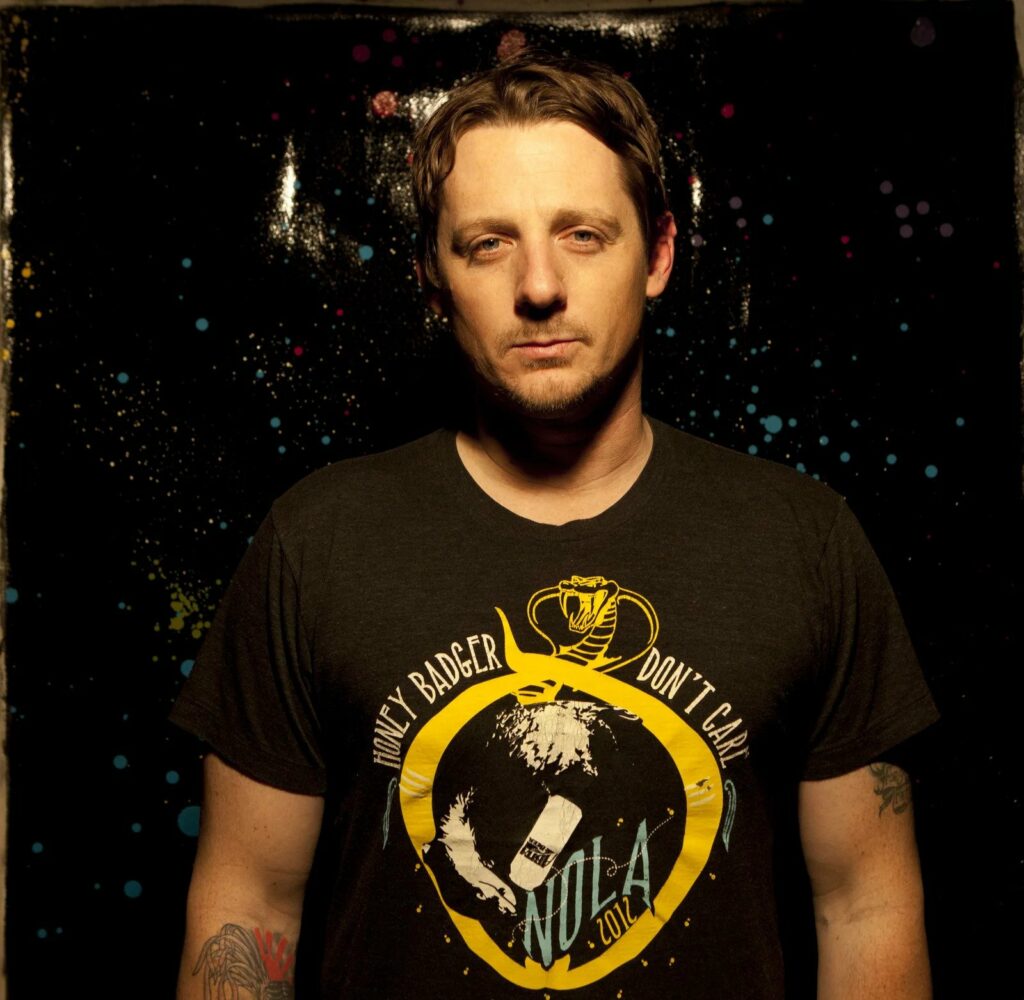Sturgill Simpson’s “Turtles All the Way Down” is the modern country classic that opens his 2014 album, Metamodern Sounds in Country Music.
The track offers Sturgill’s take on psychedelic drugs and mind-altering substances and their legality, and serves as one of the early examples of his ability to flip the country music genre on its head to create something totally different that still slaps.
“Turtles All the Way Down” is a popular phrase based on an idea that has been floating around in the world since the late 1500s, with roots in Hindu mythology.
The myth tells of a man who states that the earth is held up by elephants, which are standing on the back of a turtle. When followed-up with the question of what the tortoise is standing on, the man says that he did not know.
Later, in the early 1900s, this phrase evolved to say that the turtle is standing on top of another turtle, who is on top of a turtle, who stands on another turtle and so on.
The phrase was made popular in modern times by the late physicist Stephen Hawking, who used it in a story he tells in the opening of his famous book A Brief History of Time (1988):
A well-known scientist (some say it was Bertrand Russell) once gave a public lecture on astronomy. He described how the earth orbits around the sun and how the sun, in turn, orbits around the center of a vast collection of stars called our galaxy. At the end of the lecture, a little old lady at the back of the room got up and said: “What you have told us is rubbish. The world is really a flat plate supported on the back of a giant tortoise.” The scientist gave a superior smile before replying, “What is the tortoise standing on?” “You’re very clever, young man, very clever”, said the old lady. “But it’s turtles all the way down!”
Stephen Hawking
What comes across is a lighthearted comment on the idea that the answers to most of life’s complex questions do not actually matter, because there is no basis for our existence in the first place.
This is where Sturgill Simpson begins with his “Turtles All the Way Down”.

The lyrics are reminiscent of a psychedelic trip, or several, that may have led Sturgill to the conclusion that it’s just “Turtles All the Way Down”.
During this trip he encounters Jesus, the devil, and Buddha, and concludes that he sees God in the eyes of his best friend, who gives him some sacred advice in the second verse:
Says my son, “It’s all been done
Second verse to “Turtles All the Way Down”
And someday you’re gonna wake up old and gray
So go and try to have some fun
Showing warmth to everyone
You meet and greet and cheat along the way”
The third verse is entirely a reference to DMT, which is naturally occurring in the human body, as well as the bodies of every other living thing. It is thought to be released in our brains as we die, which offers a possible explanation for the human belief in the afterlife.
Psychedelic chemists have, of course, figured out a way to extract DMT from certain organisms and turn it into a form that is smokable.
Sturgill Simpson has clearly gotten his hands on this stuff a time or two, and sings about the experience, as well as the legality of the substance:
There’s a gateway in our minds
Third verse to “Turtles All The Way Down”.
That leads somewhere out there, far beyond this plane
Where reptile aliens made of light
Cut you open and pull out all your pain
Tell me how you make illegal
Something that we all make in our brain
Some say you might go crazy
But then again, it might make you go sane
Sturgill then follows up with a verse that comments on the frustration he feels with religion, and specifically with the Bible. “Every time I take a look, inside that old and fabled book,” he sings, “I’m blinded and reminded of, the pain caused by an old man in the sky.”
Norman Greenbaum’s “Spirit in the Sky” comes to mind here.
Then, Sturgill specifically mentions the drugs, perhaps to say that they are a nice way to change your perspective, but they still don’t hold the answers you’re looking for: “Marijuana, LSD, Psilocybin, and DMT,” he sings, “They all changed the way I see. But love’s the only thing that ever saved my life.”
Finally, Sturgill comes to a conclusion, choosing to encourage listeners to live their life the way they please, and don’t waste their time trying to find the answers, because “it’s turtles all the way down the line.”
In this way, he has crafted an anthem for the open-minded, written in the style of an old school country ballad.
In fact, if you listen closely, you may notice that “Turtles All the Way Down” is closely influenced by Kris Kristofferson’s “Me and Bobby McGee”, in the way that the late great Waylon Jennings played it in the 1970s. Clearly Sturgill had done his research.
Watch the music video for “Turtles All the Way Down” below.
